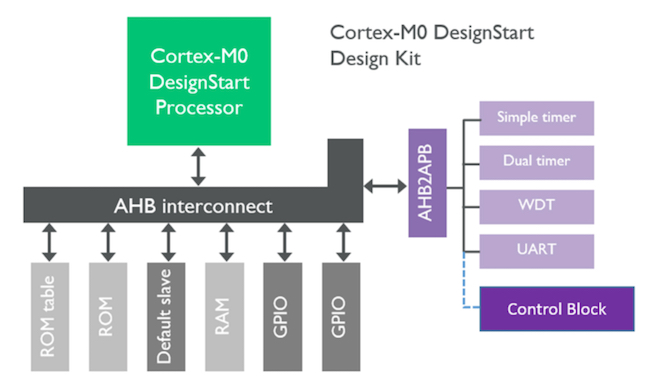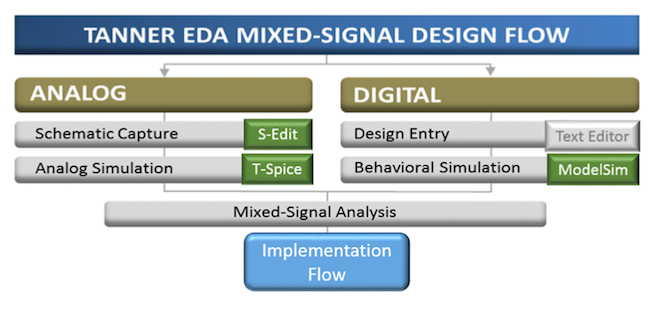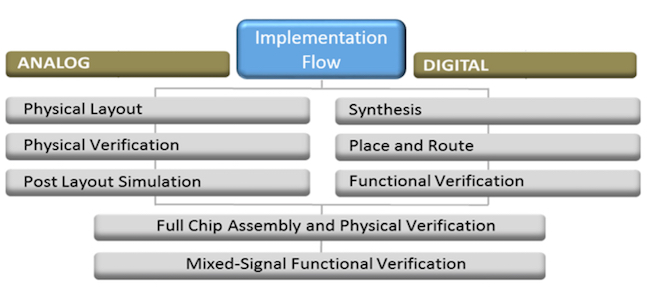Leverage a zero-cost proof-of-concept platform for the IoT
A collaboration between ARM’s DesignStart program and Mentor Graphics’ Tanner EDA division provides a free-of-charge evaluation platform for NRE-constrained SoC designs aimed at the embedded and Internet-of-Things (IoT) markets.
It is intended to be low-cost, easy-to-use for AMS specialists who have limited or no experience in digital integration, and suited to rapid design time for tighter deadlines.
The platform comprises evaluation IP for the small-footprint Cortex-M0 core and 30-day access to Tanner tools for schematic capture, simulation, digital design entry, and mixed-signal analysis.
It was first launched in 2016, but the two companies have updated the platform and its support. To that end, they have just published a jointly-authored white paper that takes prospective users through a sample design.
Once users have completed proof-of-concept work on their designs, they can buy the license and tools needed for a full implementation at special rates. For example, moving a design to prototype on an ARM-supplied FPGA costs $995 and a “simplified, fast-track, commercial license” for the M0, its SDK and related Keil MDK tools costs $40,000 (prices as of March 2017).
Inside the ARM DesignStart/Tanner EDA platform
The Cortex-M0 is a 32bit processor with a number of features that ARM says make it well suited to embedded and IoT designs.
These include multiple low power states (sleep, deep sleep, state retention); a smaller code density than 8 and 16bit devices; only 12,000 gates; and, particularly of interest to digital design newcomers, just 56 instructions and one AHB bus interface, making the M0 comparatively easy to master.
The DesignStart kit (Figure 1) also contains relevant peripherals and ARM tools (including the Keil MDK-lite suite for initial software development).
Tanner EDA’s contribution (Figure 2) includes the S-Edit, T-Spice and ModelSim tools that enable schematic capture, simulation and analysis.
Gaining access to the proof-of-concept platform is a simple four-stage process.
- Apply to join ARM’s DesignStart program.
- Once approved, download the M0 Design Kit free-of-charge.
- Apply for a free 30-day evaluation of the Tanner EDA tools.
- Once approved, download the tools free-of-charge, set up a license, and begin work.
Once a proof-of-concept has been completed to users’ satisfaction, they can move on to purchasing the full Tanner EDA implementation flow (Figure 3) and ARM license.
Getting started off a sample evaluation design
As noted earlier, ARM and Tanner EDA have produced a white paper, ‘Rapid SoC Proof-of-Concept for Zero Cost’, based on a sample design (a sensor connected through an 8bit analog-to-digital converter and on to the M0 processor). It guides prospective users through the platform in four straightforward stages:
- Creating the interface.
- Connecting to the Cortex-M0.
- Writing the software.
- Simulating the design.
Coding examples and block diagrams illustrate the proof-of-concept process throughout the paper.
“The project focuses on accurately interfacing your AMS design to the Cortex-M0 processor to show your end-customer that the design is feasible,” the white paper notes. “You can complete the project quickly while expending zero NRE.”






